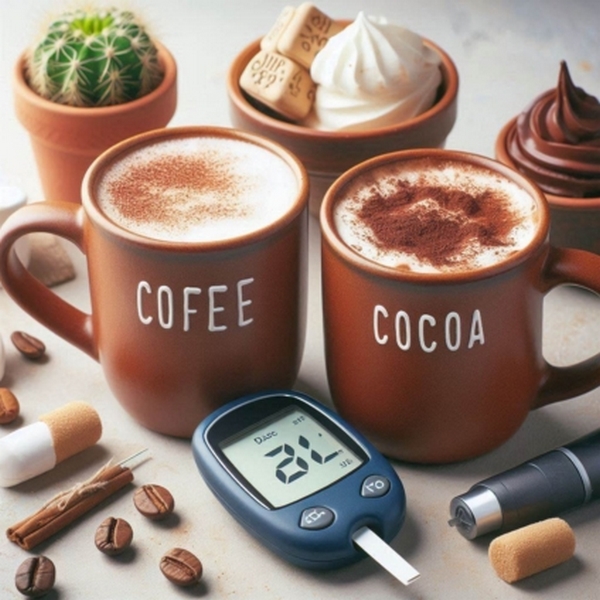Coffee and cocoa beverages are staples in diets worldwide. Coffee, known for its stimulating effects, is consumed daily by millions, while cocoa is enjoyed for its rich flavour and antioxidant properties.
Although few studies are available on hot beverage consumption in Africa and Ghana for that matter, hot beverages like coffee and cocoa are commonly consumed in households and offices, and sold by street vendors in most urban and peri-urban areas.
With increased consumer awareness of the relationship between diet and disease, an understanding of how these beverages affect blood sugar levels is crucial, especially for individuals managing diabetes or prediabetes.
Coffee and Blood Sugar Levels
Caffeine, the primary active component of coffee, can temporarily raise blood glucose levels by stimulating the release of stress hormones like adrenalin, which in turn reduce insulin sensitivity.
This effect is more pronounced in individuals with insulin resistance or blood sugar control issues. Despite caffeine’s short-term impact, long-term coffee consumption has been linked to improved insulin sensitivity in healthy individuals without diabetes.
Studies suggest that habitual coffee drinkers may have a lower risk of developing type 2 diabetes, possibly due to beneficial antioxidant compounds and magnesium. Magnesium in particular helps to improve insulin sensitivity and glucose metabolism.
Individuals with type 2 diabetes and prediabetes will however need to exercise some caution, as coffee consumption can lead to significant increases in blood sugar levels, likely due to existing impaired insulin sensitivity. This response can vary based on the type of coffee and its preparation method. Also, the long-term effects of regular coffee consumption on progression of prediabetes to diabetes remain unclear.
Cocoa and Blood Sugar Levels Cocoa on the other hand is rich in flavonoids, which can enhance insulin sensitivity and improve glucose metabolism.
These compounds also reduce oxidative stress and inflammation, contributing to better blood sugar management. While cocoa itself can positively impact blood sugar levels, many commercial cocoa products contain added sugars and fats.
Choosing unsweetened cocoa or dark chocolate with minimal added sugar is essential for managing blood sugar levels effectively. Additives like sugar, milk, cream, and flavoured syrups can significantly affect the glycaemic impact of coffee and cocoa. High sugar content can cause rapid glucose spikes, while high-fat additives can alter insulin response.
The Bottom Line Coffee and cocoa beverages can have varied effects on blood sugar levels depending on preparation methods, additives, and individual health conditions. Genetics, physical activity levels, existing health conditions, and overall diet can influence how coffee and cocoa affect blood sugar levels.
While both beverages offer potential health benefits, it is important to consume them mindfully, especially for people with blood sugar concerns. Monitoring intake and choosing healthier options can help manage blood glucose levels effectively. Consulting with a healthcare provider for personalized advice is recommended for individuals with diabetes or blood sugar control issues.
Written by Pearl Kudexa (MSc,RD) and Laurene Boateng (PhD, RD)
Pearl Kudexa (MSc, RD) is a Registered Dietitian and contributing writer for www.fullproofnutrition.com
Laurene Boateng (PhD, RD) is a Registered Dietitian and Senior Lecturer in the Department of Dietetics, University of Ghana. She is the founder and editor-in-chief of www.fullproofnutrition.com , a website committed to providing reliable, evidence-based, and practical healthy eating advice.
Consulting a registered dietitian empowers you to take control of your health and make informed dietary choices that support your well-being.
Click here to join Full Proof Nutrition WhatsApp channel to receive more educative content

